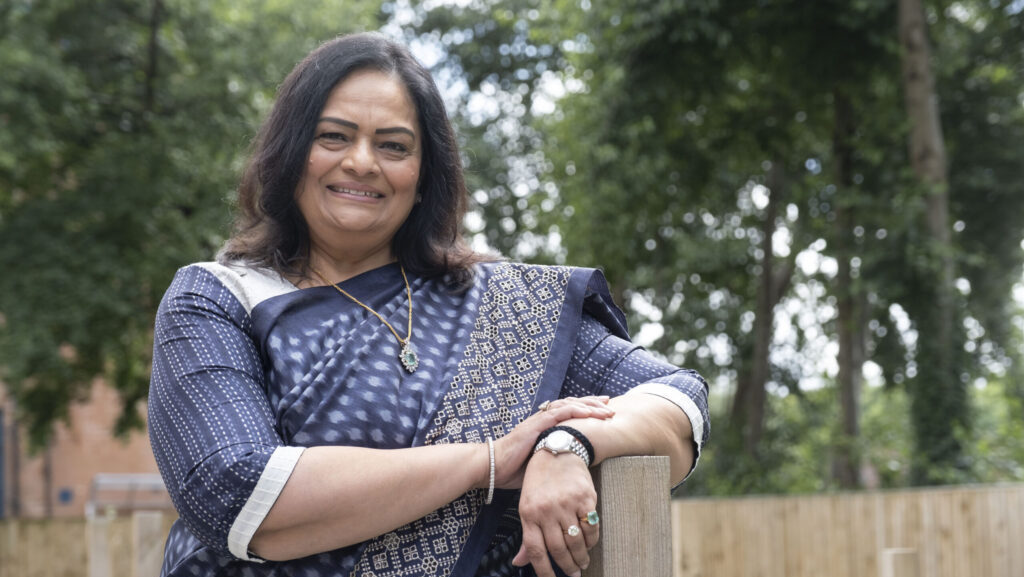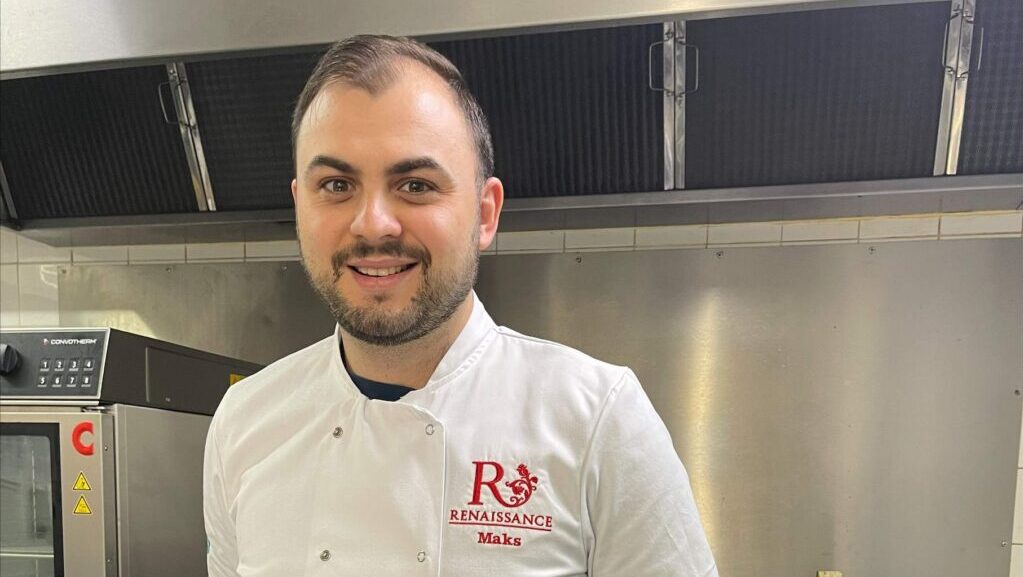A life in care
Caring Times editor Sam Lewis sits down with Hayden Knight, chief executive of Orchard Care Homes, to discuss his five years at the helm of the dementia specialist care provider, his 28 years in care, and his new appointment to the Care England policy board
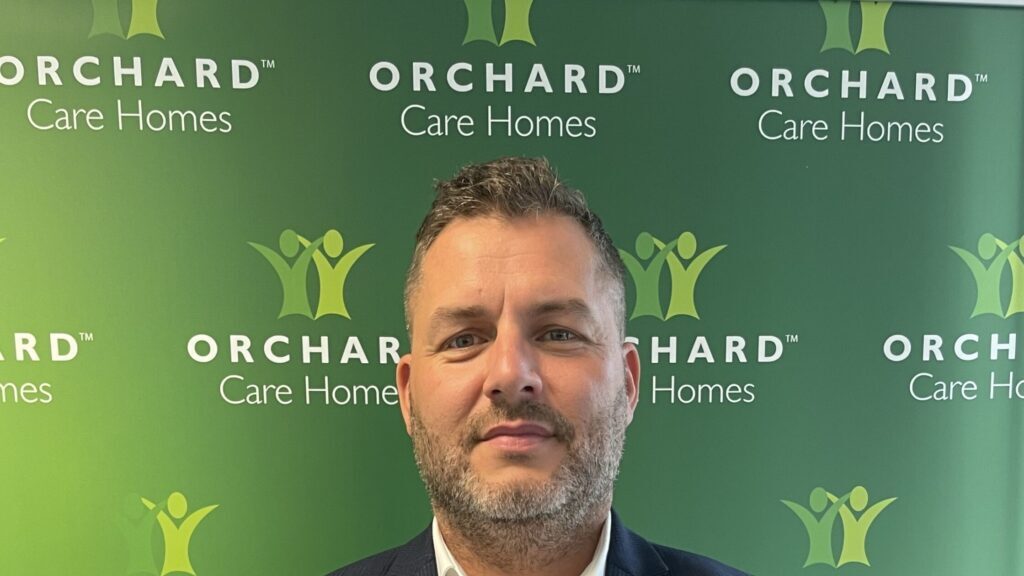
Passionately good-willed, laid-back and open are not always phrases that can be applied to chief executives, especially when you put them in a room with a journalist. It comes as a very welcome relief, then, to find Orchard Care Homes boss Hayden Knight mercifully devoid of the usual forced formality and corporate-speak one might associate with most business executives. Not to say he isn’t professional or effective at his job – quite the contrary – but in many ways he seems to be the anti-chief executive: relaxed, personable, opinionated and, above all else, human. You could say that speaking with him, compared to most business leaders, is like Knight and day.
2024 has been something of a milestone year for him. Knight joined Care England’s policy board in August – Martin Green’s approval marking a greater testament to his character than I could ever give – and in September celebrated the fifth anniversary of his becoming chief executive at Orchard.
When one takes a look at Knight’s CV, his self-assured nature begins to make sense. He entered the care sector on 1 October 1996, 28 years ago this month. The way he tells it, he had just finished an engineering degree and was working a “well-paid” but not particularly satisfactory job in that field when he decided to quit. Having worked part-time in a care home while studying, Knight knew where his heart really lay, and he quickly found a role with Priory Group, a company he would ultimately stay with for 23 years, rising from a humble support worker to managing director, a title he assumed in 2017.
“I went back to care because it was something I actually enjoyed,” he says. “I think I was on about £3 an hour at first, but I loved the job. That’s how my adventure started. From there, I took advantage of all the qualifications I was offered and I progressed through the ranks.”
Knight expresses his gratitude to Priory Group for his time with them, and for their willingness to “invest” in him, without which he might never have landed the Orchard role, first becoming chief operating officer in May 2019, and soon after chief executive in October of that year.
Talking to him, it’s easy to see why he was able to climb the ladder. His passion for all aspects of care and business shines through as he discusses Orchard’s current health as a business, and how he envisions its future trajectory.
“We’ve 23 homes currently,” he explains, “but obviously our endeavour is to be bigger.”
In describing Orchard’s current position in the market, he says: “We are a specialist dementia organisation,” adding that “about 95%” of its residents have some form of the condition.
On how it became known to the public as ‘the dementia specialist’ in social care, he reveals the company’s two-pronged approach. “One is our dementia promise,” he reveals. “It’s not just a dementia strategy that sits on a shelf. It’s all-encompassing. It changes values and behaviours, even in the way we articulate how we support residents.”
Secondly, he cites Orchard’s ‘Reconnect communities’, designed for those with more severe cases of dementia. The company’s website says the communities “allow for a more tailored, personal approach to dementia care”, and “as the name suggests, help people reconnect with their lives”.
“Sadly, sometimes there’s just nowhere for people with high-acuity dementia needs to be supported,” Knight says. “Some of these people come to us from failed placements. These communities have really become the bedrock of our dementia support system, and the outcomes they are achieving are phenomenal. We’ve just recently opened our tenth Reconnect community, and we’ve got plans to open far, far more in the future.”
But expanding its dementia support is not Orchard’s only goal. Knight is keen to evolve into a business that caters for other kinds of specialist elderly care too. “If you look at the data,” he reveals, “there is a great requirement for elderly mental health provisions, for example, because there’s just a lack of them.” He goes on to mention that there is a similar scarcity of services dealing in older adults with Down’s syndrome and learning difficulties. That passion shines through when he says: “I really want to move into that specialist space. There’s a lot of specialist support for younger adults, but not so much for the elderly.”
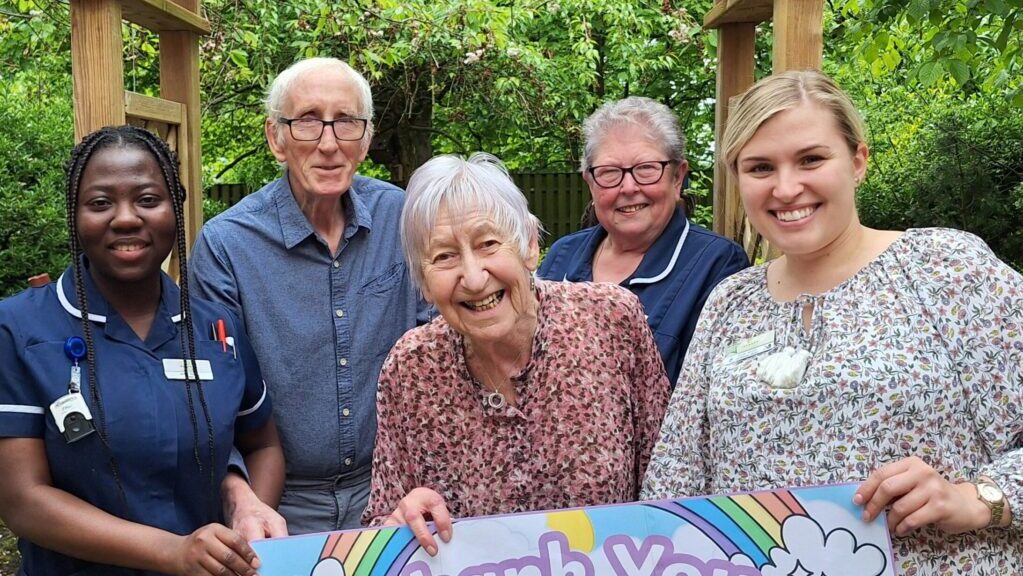
Sector struggles
It’s not all looking to the future for Orchard, though. Unfortunately, the present is laden with the kind of challenges that face most companies in the sector.
“Obviously, people recruitment is a challenge,” says Knight, “but fortunately, when I say challenge, we’re actually making good headway on that front.”
He goes on: “I’ve worked in the sector for 28 years. In that time, recruiting and retaining good staff has always been a challenge. Always. Social care jobs are seen as hard work, long hours and low pay.” He laments: “It’s not recognised for the skilled job it is, nor for how much it gives back to the community.”
However difficult staffing has been in the past, the last few years have proved to be some of the worst ever for care providers, and now the concern is the lack of international staff coming to the UK, a demographic upon which the sector had heavily relied. In March, changes to the Health and Care Worker visa system meant that migrant workers can no longer bring ‘dependants’ (family members who rely on the worker financially, such as children) to the country, cutting the number of visas given to health and care staff by more than 80% year-on-year in the first three months under this new stipulation.
“Yes, we have unfortunately seen quite a drop-off in those applicants from overseas,” says the chief executive. “That has reduced quite a lot in the last few months. We are still attracting them, but not in the quantities we were before.” Luckily, Knight says, Orchard doesn’t have high staff turnover, and it is managing to keep vacancy rates low.
The other thorn in his side has been the much-publicised turmoil at health and care regulator the Care Quality Commission, but this is an area he believes is improving slowly. “This morning we had another inspection report come in for one of our homes,” he reveals with a smile. “We had been quite concerned about how things would go under the new inspection framework – everybody was – but so far we’ve had three inspections come in and all of our homes remain Good-rated under the new regime. The group is 100% CQC-compliant, which is something we’re really, really proud of.”
Without missing a beat, though, he goes on to add: “But Good isn’t good enough, you know? Now we are embarking on the road to Outstanding. That’s our next endeavour. I’d love to be able to say all our homes are rated Outstanding. That’s my dream.
“Obviously that will take time,” he concedes, “but if we’ve hit Good across the board, I don’t see why every home can’t attain Outstanding. Quality and governance is very much the priority at Orchard.”
When asked how the company goes about not only maintaining but improving its inspection ratings, Knight says: “We have a very robust governance structure and framework. We’re fully digital, so we have access to numerous kinds of data and information which can prove very helpful. Perhaps most important of all, we have some incredible individuals in the business, not least the specialists in our quality team.”
QMOs (or quality monitoring officers), Knight explains, “go out to the homes and do our mock inspections” in a bid to prepare them for the real thing.
“For me, though,” he adds, “the silver bullet, the reason we’ve achieved such remarkably consistent ratings across the board, is because we have a culture of transparency, of trust and honesty.” Without that transparency in business, he claims, “you don’t always have visibility of what’s going on, and where improvements can be made.” Orchard’s managers, he says, “know to speak up when things aren’t quite right, and then we get in there and rectify the problem before it has a chance to escalate. It’s all about trust and being a learning organisation, because things do go wrong in business – that’s a given – but what’s important is how you act when these things happen. It’s about having the desire to admit your mistakes and use them as a means to improve.”
On whether the CQC has been, at times, frustrating to work with, Knight admits: “Yes, towards the latter stages of the previous CEO’s tenure it was getting to be more and more challenging. When they brought the portal out it was disruptive to say the least. That particular issue is starting to ease now, but there’s a long way to go.”
Regarding the regulator he adds: “They are making a lot of promises. I suppose only time will tell if they can deliver on them.” He remains sceptical, however, adding that “if history tells us anything, it’s that the CQC hasn’t always been able to deliver on what they’ve promised”.
Of course, the disorganisation and lack of communication from the inspectorate is often discussed in the health and care sectors. What isn’t so often talked about is the effect this has on providers. Knight explains: “We need to make sure that this regulator is future-proofed and fit for purpose, because at the moment it’s not delivering. This also hampers our growth. We have to respond to market demand, and right now we are seeing a lot of demand for nursing homes with clinical support. If we wish to move forward and support the community, we have to register a lot of our properties as nursing homes and we were getting pushed back and pushed back by delays on the CQC’s end. It was a completely fragmented process. Urgent registration should be taking place in nine to 12 weeks; we were looking at nine to 12 months, which was horrendous.
“Fortunately, things are settling. The portal seems to be ticking along and we are getting some responses back. However, it was not a good time, and it pulled us away from doing what we should be doing, which is to focus on outcomes for individuals.”
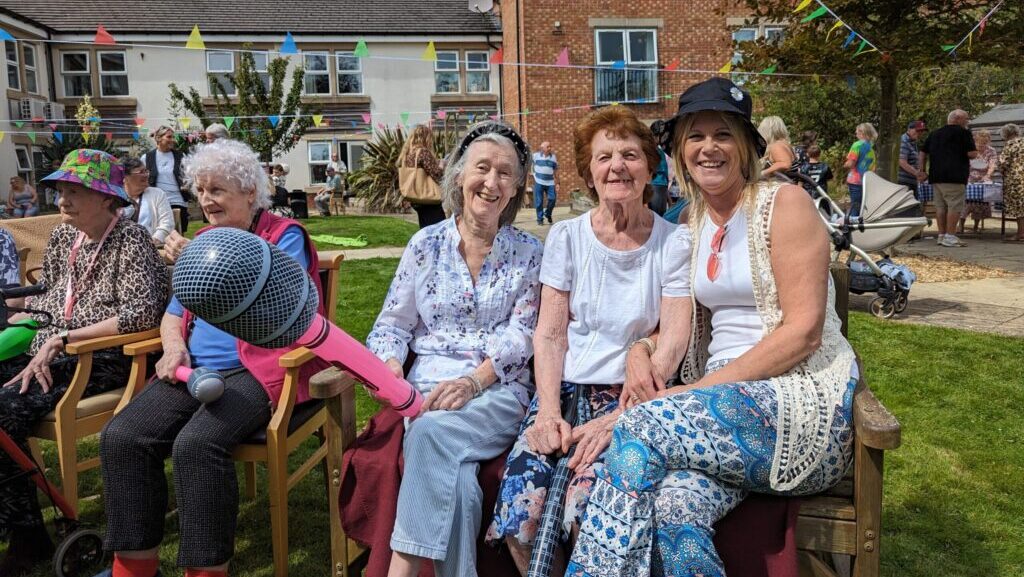
Care England
Fortunately, Knight is now in a position to wield some influence at a legislative level within the care sector thanks to his new “supportive role” on the Care England policy board. At the time of our conversation, he is still keen to get stuck into his work with the organisation, but mentions that the areas he wants to focus on in particular are “staffing, regulation and funding”. He adds: “The role is a privilege.”
As much as he relishes the work, he knows that it will be an uphill battle. No one knows better than Knight the glacial pace at which politics can move. Discussing the still relatively new Labour government, he says: “I’ve been in the sector, like I say, since 1996. I remember Tony Blair coming in and he made allthese promises about the care sector. That was 28 years ago. Since then, we’ve had seven prime ministers and we’re still in exactly the same position, so you’ll have to excuse me if I feel a little sceptical towards any new government.
“I think the only person who made some sort of strides, actually, was Boris [ Johnson],” he goes on. “Not enough, but he did start to move things forward.”
Looking back to the current Labour administration, and justifying his scepticism, he continues: “The reforms were scrapped on day one. I knew that was going to happen. We all did. If you look at their policy around social care, for example the National Care Service, they’re making some big pledges but there are no numbers in there, there’s nothing to back it up. So everybody in the sector is right to be a little dubious and confused about exactly what Labour’s intent is.
“Politicians just don’t seem to take it seriously,” he adds. “It’s just wilful blindness at this point, isn’t it? They always want more for less. They want higher quality and better outcomes, like we all do, but they’re not giving us anything with which to achieve that.”
He also laments what he labels a “lack of consistency in approach” across the country, claiming that working with the many different local authorities and integrated care boards up and down England can be a challenge.
Knight also decries the recent scrapping of the Winter Fuel Payment. “That’s just going to drive up ill health and drive more people into care homes,” he says. “I understand that we have some wealthy pensioners, but it should be means-tested. It can’t just be a blanket approach. Many of these older people will get ill and will end up on a hospital ward or in a care home, and aside from anything, that won’t save the government money.”
Regarding what, in an ideal world, he would like Labour to do about the sector, Knight believes that there’s not enough recognition for the role social care plays in the overall health and care system. He concludes: “Ultimately, I want equality. Yes, the NHS is important, but without our sector there is no NHS.”
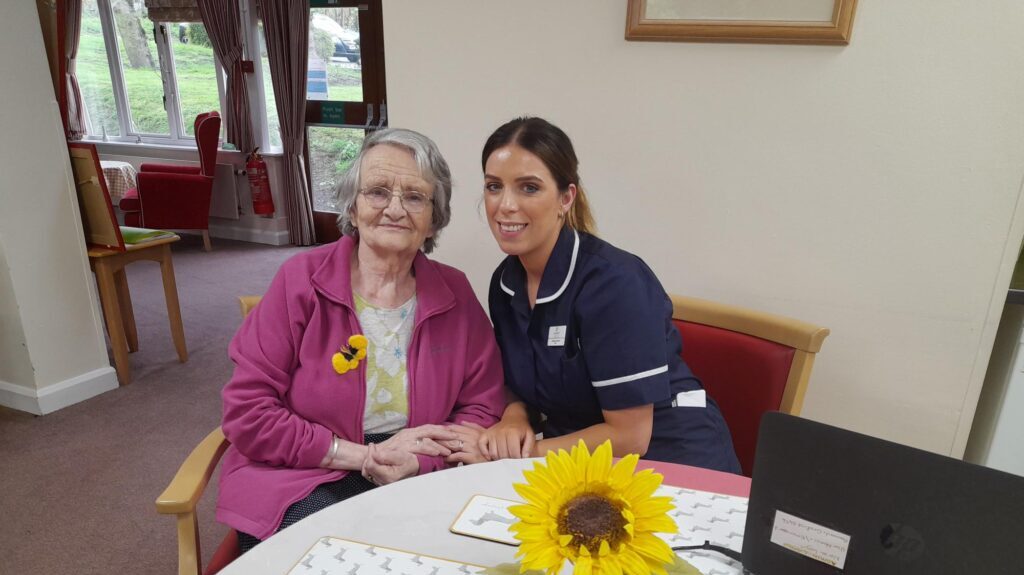
Five years
When we discuss the fifth anniversary of Knight’s taking over as chief executive at Orchard, he looks wistful. “It’s gone very fast,” he says. “I’ve thoroughly enjoyed it.
“Obviously we had the pandemic a few months into my tenure, which really tested my mettle. I suppose it tested all of us – those that were new and those who had been at the company for years – but I’m very proud of what the company did during those years.”
He adds with conviction, “I’ve got no ambition or plans to move anywhere else for the foreseeable future,” something about which Orchard shareholders will no doubt be happy.
Shareholders certainly cannot accuse the chief executive of not dreaming big. Looking ahead to the next five years, he confirms: “It’s all about growth, and further diversification into other specialisms. Right now, we have 23 homes, but in the next five years I’d like to double that number, if not more.”
Certainly not resting on its laurels, Orchard has just opened its latest dementia-specialist Reconnect community at Langfield Care Home in Middleton, Greater Manchester. “That’s absolutely flying,” enthuses the chief executive.
When asked if he has any other news or announcements to share, Knight once again bucks the trend of most chief executives and corporate types. Rather than mentioning another home that Orchard has in the pipeline, or else some new ESG programme, he chooses a much more personal topic.
“There is some sad news for us,” he reveals with genuine emotion. “Cheryl Baird, our group director of quality, has been with us for some time, but unfortunately she will be leaving us towards the end of the year.”
On Baird, who joined Orchard at the outset of the pandemic, he goes on: “She’s been absolutely instrumental in the growth of Orchard and the stability and quality we have achieved today, as well as the specialism we deliver. It’s truly a very sad day for Orchard, and I wish her all the success in the world moving forwards. She leaves a real legacy behind.
“So, the search for her replacement is ongoing, but we’ve got a fantastic team I know I can rely on.” It is this sort of sentiment, said with genuine feeling behind it, that shows how Knight was able to rise up the ranks at Priory and later Orchard.
As we come to the conclusion of our conversation, the chief executive says: “I suppose in my work here I’ve been giving Orchard an identity. Now Orchard is known for being the specialist business in dementia. You asked about my biggest achievement in care, and I suppose you could say that, in my 28 years, Orchard itself is my biggest achievement.”

